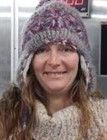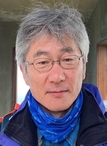
Speakers
FUTURE/HD/POC Topic Session
Climate Extremes and Coastal Impacts in the Pacific

Neil Holbrook University of Tasmania, Australia
Session 1 Invited Speaker
Neil Holbrook is Professor of Ocean and Climate Dynamics in the Institute for Marine and Antarctic Studies at the University of Tasmania, Australia. He has published extensively in the international literature on the ocean's role in climate, climate dynamics and variability, ocean and climate extremes, and climate change. Over the past decade, Neil has made substantial contributions to advancing our understanding of marine heatwaves, including designing and leading the first global assessment of the drivers of marine heatwaves, which elucidates the potential predictability of enhanced or suppressed marine heatwave likelihoods associated with large-scale climate modes.
Neil is an elected Fellow of the Australian Meteorological and Oceanographic Society. He is a chief investigator in the NESP Climate Systems Hub, and ARC Centres of Excellence for Climate Extremes and 21st Century Weather. He formerly led Australia’s National Climate Change Adaptation Research Network for Marine Biodiversity and Resources (2009-2013) and was President of the International Commission on Climate of IAMAS/IUGG (2011-2019). Neil is recognised as a Clarivate highly cited researcher (2021-2023).
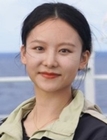
Ce Bian Ocean University of China, China
Session 1 Invited Speaker
Ce Bian is an early career researcher in Physical Oceanography and Climate Dynamics. Her research primarily focuses on the dynamics and impacts of marine heatwaves, significantly enhancing understanding of their drivers and effects on global climate systems. Ce is renowned for her insightful presentations at international conferences and her publications in prestigious journals such as Nature Communications and Geophysical Research Letters. Her work highlights the crucial roles of oceanic mesoscale eddies in initiating and moderating marine heatwaves, and investigates the scale-dependent transitions of these phenomena from oceanic to atmospheric drivers. Beyond academia, Ce has demonstrated leadership in organizing sessions at major events like the EGU Annual Meeting, facilitating important discussions on marine heatwaves. Her research is essential for predicting and mitigating the effects of marine heatwaves amidst increasing global warming.
FUTURE/BIO/FIS/HD/POC Topic Session
S-CCME/SICCME session on innovation in using integrated approaches to detect and manage for the effects of climate change tipping points and critical thresholds in marine ecosystems

Mary Hunsicker NWFSC, NOAA, USA
Session 2 Invited Speaker
Dr. Mary Hunsicker is a research ecologist at the National Oceanic and Atmospheric Administration’s (NOAA) Northwest Fisheries Science Center in Newport, Oregon, USA. She is also a courtesy faculty member in the College of Earth, Ocean, and Atmospheric Sciences at Oregon State University. Her research interests focus largely on understanding the effects of climate variability and change on species distributions, food web interactions, phenology, and community dynamics. She has been involved in several research projects aimed at identifying ecosystem thresholds that may be useful for informing ecosystem-level reference points for fisheries management. She and her colleagues have also developed a modeling framework to track and forecast changes in ecosystem state in relation to climate perturbations. The goal of that framework is to provide the earliest possible detection of ecosystem indices shifting to a novel state. Mary was a Co-Chair of the PICES and ICES working groups on Common Ecosystem Reference Points. Prior to working for NOAA, Mary was a postdoctoral fellow at the National Center for Ecological Analysis and Synthesis (University of California, Santa Barbara) where she worked with a large, collaborative team on advancing the science of ocean tipping points.
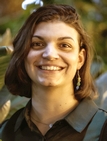
Camilla Sguotti Department of Biology, University of Padova, Italy
Session 2 Invited Speaker
Camilla Sguotti is currently a Marie Curie PostDoctoral fellow at the University of Padova in Italy, working on approaches to estimate the resilience of marine systems and detect the presence of tipping points due to external anthropogenic stressors. She started to work on non-linear dynamics and tipping points since her PhD, that she obtained in 2019 from the Institute of Marine Ecosystems and Fishery Science of the University of Hamburg, Germany. During her PhD she investigated the dynamics of 20 stocks of Atlantic cod (Gadus morhua) and especially the presence of non-linear and non-stationary dynamics due to fishing and climate change. After the completion of the PhD, she continued with a PostDoc at University of Hamburg, in which she investigated the presence of tipping points in different marine ecosystems, such as the North Sea. In 2022 she was awarded the Marie Curie Postdoctoral Fellowship to develop a framework to estimate the resilience of marine systems to global changes. The ultimate goal of her research would be to translate the gained ecological knowledge into advice for Ecosystem Based Management.
FUTURE/FIS/HD/MONITOR Topic Session
Advanced tools to monitor, observe, and assess small pelagic fish populations in support of ecosystem based fisheries management and maintaining ecosystem services

Vaneeda Allken Institute of Marine Research (IMR), Bergen, Norway
Session 3 Invited Speaker
Vaneeda Allken is machine learning research scientist at the Institute of Marine Science in Norway. She holds a Master's degree from the University of Rennes 1, France, and a Ph.D. in numerical modelling from the University of Bergen, Norway. In 2015, she began transitioning towards data-driven approaches, marking a significant shift in her research focus. During her postdoctoral position at the University of Tübingen in Germany, she employed deep neural networks to detect signs of diabetic retinopathy from retinal images and developed a method to quantify uncertainty in algorithmic decisions. Since 2017, she has concentrated on creating practical machine-learning solutions for marine science, emphasizing real-world applications. She has played a pivotal role in developing and implementing a novel method to automate the estimation of fish species distribution using images from trawl camera systems. Her work bridges the gap between advanced machine learning techniques and marine science.
Minkyoung Bang Korean Institute of Ocean Science and Technology (KIOST), Korea
Session 3 Invited Speaker
Minkyoung Bang is a postdoctoral researcher in the Department of Ocean Circulation & Climate Research at the Korea Institute of Ocean Science and Technology (KIOST) in Busan, Korea. She received an M.Sc. in Fisheries Oceanography from Pukyung National University in 2015, followed by a Ph.D. in Ocean Climate from the Ocean Science Technology School, a joint graduate program of Korea Maritime & Ocean University and the KIOST, in this year. Minkyoung’s research focuses on investigating the impacts of climate change on marine ecosystems, with the aim of contributing to fisheries management strategies to prepare for climate change. Specifically, she is interested in understanding how climate change affects the distribution of key fishery species, such as anchovy, mackerel, and squid in Korean waters under future climate change scenarios using statistical and machine learning-based models. She is also interested in the impact of marine heatwaves—an extreme climate event—on marine ecosystems.
FUTURE/BIO/MONITOR/TCODE Topic Session
Observational frontier and new studies for understanding of ocean and ecosystem

Maria Kavanaugh Oregon State University, USA
Session 4 Invited Speaker
Maria Kavanaugh (Associate Professor, Ocean Ecology and Biogeochemistry, Oregon State University) is a seascape ecologist who focuses on the intersection of marine biodiversity, ecosystem functioning, and climate-ocean dynamics. She utilizes a multi-pronged approach that includes lab and field-based studies, satellite remote sensing, and data science. She collaborates broadly across disciplines and sectors to codevelop indicators and observation systems to assess and track changes in plankton community composition, carbon cycling, and ecosystem health. Currently she leads a US Marine Biodiversity Observation Network node for the Northern California Current, focused on understanding spatiotemporal variability of multi-trophic level planktonic assemblages, integrating imaging and spectral systems with remote sensing, and developing mechanistic and multi-scale indicators for marine ecosystem management.

David Kimmel
NOAA Fisheries, USA
PICES Expert Group Member (BIO, WG-48)
Session 4 Invited Speaker
David Kimmel is a Research Oceanographer at the Alaska Fisheries Science Center (AFSC), NMFS, NOAA where he leads the zooplankton team of the Recruitment Processes Program. The research of the zooplankton team is primarily focused on the biological oceanography of zooplankton and how it relates to ecosystem structure and function in Alaska’s large marine ecosystems. Specific projects include: time-series analysis to detect community change, assessing juvenile fish diet trends over time, and evaluating ecosystem models using empirical data. Zooplankton data are synthesized for Ecosystem Status Reports as well as Ecological and Socioeconomic Profiles of fish and used to inform management decisions. He is a member of the PICES BIO committee and co-chair of Working Group 48: Towards best practices using Imaging Systems for Monitoring Plankton (WGISMP).
Chris Rooper
Pacific Biological Station, DFO, Canada
PICES Expert Group Member (FIS, WG-43, WG-47)
Session 4 Invited Speaker
Dr. Chris Rooper is a Research Scientist with Fisheries and Oceans Canada at the Pacific Biological Station in Nanaimo, British Columbia, Canada. Dr. Rooper’s research is focused on developing and applying new methods for estimating fish and invertebrate abundance, distribution and habitat use. For the last 15 years he has been working with colleagues in Canada, Alaska, and the U.S. West Coast to apply advanced stereo-optic technologies to conducting in situ surveys of deep-sea corals and sponges and rockfishes. His research has integrated fisheries acoustics and stereo-optics to conduct non-lethal surveys of small pelagic and other fishes, as well as studying their behavior and use of habitat. Much of this work has been done to support or validate species distribution modeling. More recently, Dr. Rooper has been working with colleagues to collect data on international fisheries in the North Pacific that can be used in stock assessment and risk management. Dr. Rooper received his B.S. from Oregon State University (“Harvard of the West”), M.Sc. from the University of Alaska, Fairbanks and Ph.D. from the University of Washington.
More...
FUTURE/MONITOR/TCODE Topic Session
Past, Present and Future of CREAMS program: 30 years of international research in North East Asian Marginal Seas

Seongbong Seo Ocean Circulation & Climate Research Department, Korean Institute of Ocean Science and Technology (KIOST), Korea
Session 6 Invited Speaker
Seongbong Seo is a Senior Research Scientist in the Department of Ocean Circulation & Climate Research at the Korea Institute of Ocean Science and Technology (KIOST). He received both his M.Sc. and Ph.D. in Oceanography from the Korea National University of Science and Technology (UST), where he conducted research on the estimation of vertical eddy diffusivity based on observations and the modeling-based horizontal dispersion of floating material in regional seas. Since 2023, he has been working at KIOST, focusing on the transport and distribution of radioactive materials and marine floating debris in the North Pacific. His research aims to assess the environmental impacts of these materials by investigating key oceanic processes such as vertical diffusivity and horizontal dispersion, contributing to a better understanding of their influence on marine ecosystems. Within PICES, he is a member of the Science Program “FUTURE” Scientific Steering Committee.
BIO/HD Topic Session
Social, economic and ecological implications of recoveries, range expansions and shifting distributions of marine birds, mammals and fish

Harold Levrel AgroParisTech University and the University of Paris-Saclay, France
Session 7 Invited Speaker
Harold Levrel is a professor of ecological economics at AgroParisTech and at the University of Paris-Saclay who is addressing conditions needed to achieve ecological transitions within economies, with an emphasis on living systems and biodiversity conservation policies. His research employs an interdisciplinary approach focused on practical applications. Research themes include the co-evolution of biological and socio-technical systems, ecological compensation, and compromises associated with ecological debt, biodiversity conservation, and institutional changes related to the interplay between economies and biodiversity.

Hiroto Murase the Tokyo University of Marine Science and Technology, Japan
Session 7 Invited Speaker
Dr. Hiroto Murase is an associate professor at Laboratory of Cetacean Biology, Tokyo University of Marine Science and Technology, Japan. His research focuses on ecology of cetaceans with a strong background in marine ecology, especially in the Antarctic and the North Pacific Ocean. He conducts studies covering from planktons to top predators with emphasis on cetaceans. He has participated in the Scientific Committee of the International Whaling Commission (IWC/SC) and working groups of the Commission for the Conservation of Antarctic Marine Living Resources (CCAMLR) for many years as a member of the Japanese delegation. He has been acted as the cruise leader of the IWC-Pacific Ocean Whale and Ecosystem Research (IWC-POWER) since 2020. He is a director of the Japanese Society of Fisheries Oceanography and a member of the Ecopath Research and Development Consortium. He studies ecology of humpback whales that have appeared around Hachijojima Island, Tokyo Metropolis, Japan since 2015.
BIO/POC Topic Session
Changing ocean carbon cycle and its consequences for the ocean environment: Detection, prediction and mitigation
Session 8 Invited Speaker
TBA
MEQ Topic Session
Recent advances in plastic pollution research in the North Pacific

Jinfeng Ding First Institure of Oceanography (FIO), China
Session 9 Invited Speaker
Jinfeng Ding is a postdoctoral researcher at the First Institute of Oceanography, Ministry of Natural Resources, China. She received a PhD in Environmental Science from the Ocean University of China in 2023. Jinfeng's research focuses on the distribution and environmental behavior of microplastics in marine environments. Particularly, she is interested in the migration patterns of microplastics across multiple environmental media in the Pacific sector of the Arctic Ocean using statistical methods. Together with her colleague, they have found the link between microplastic characteristics in Alaska pollock and the surrounding seawater, which will aid in investigating the potential impact of microplastics on marine organisms and marine ecosystems.
MEQ Topic Session
East meets West and West meets East: Past, current and future implications of Non-Indigenous Species (NIS) in the North Pacific

Stanley Burgiel National Invasive Species Council, USA
Session 10 Invited Speaker
Stanley W. Burgiel (“Stas”) serves as the Executive Director of the U.S. National Invasive Species Council (NISC), where he facilitates high-level policy dialogue across federal departments and White House offices on invasive species. He is responsible for overseeing the development and implementation of NISC work plan activities in areas such as wildland fire, climate change, and early detection and rapid response. Stas has worked and consulted for a range of nongovernmental, governmental, and intergovernmental organizations, including the Global Invasive Species Programme, the Nature Conservancy, the UNEP/World Conservation Monitoring Centre, and the International Institute for Sustainable Development. He received his Ph.D. in international service from the American University and a B.A. in political science from Swarthmore College.

Brian Hauk NOAA/NOS/ONMS/PMNM, USA
Session 10 Invited Speaker
Brian Hauk is the Resource Protection Specialist for the Papahānaumokuākea Marine National Monument (PMNM) with NOAA’s Office of National Marine Sanctuaries. Part of his duties are to oversee PMNM’s marine biosecurity protocols for alien species management in the Monument. Prior to his time at NOAA, he worked for Hawaii’s Division of Aquatic Resources utilizing mechanical removal techniques and biocontrol methods to control several invasive red algal species. This background has been very applicable to PMNM’s most recent challenge of managing Chondria tumulosa. Since this species discovery in 2019, Hauk has been heavily involved in the development of management actions related to the cryptogenic species that is overgrowing pristine coral reefs in the northern most atolls of PMNM. In addition to alien species management, Hauk also helps to coordinate remote ecological research voyages and incident response in the Monument. He has participated in numerous expeditions serving as a chief scientist, scientific diver or topside supervisor for technical closed circuit mix gas rebreather operations. He has also been active in training undergraduate scientific divers in underwater ecological survey techniques in an effort to help prepare the next generation of marine research scientist.

Christy Martin University of Hawaii, USA
Session 10 Invited Speaker
Christy Martin has worked on terrestrial and marine invasive species issues in Hawai‘i and the Pacific region for more than 20 years. She is the Program Manager & Information Officer for the Coordinating Group on Alien Pest Species (CGAPS, pronounced “see-gaps”), a partnership of agencies and organizations working to fill gaps in Hawaii's biosecurity policies and programs. Christy also serves as an appointee to the Invasive Species Advisory Committee which provides information and advice for consideration by the National Invasive Species Council.

Nikolai Maximenko University of Hawaii, USA
Session 10 Invited Speaker
I’m a Senior Researcher at the University of Hawaii, a Physical Oceanographer with expertise in multi-scale ocean circulation and its dynamics studied with in situ observations, remote sensing, and modeling. While I’m interested in everything that ocean currents transport, in the last 15 years the pathways of marine debris, its interactions with marine life, and impacts on marine ecosystems became the main focus of my studies. Plastic pollution spread in a lifetime of my generation to every corner of the planet but the big, quantitative picture of the problem is still missing. Together with my colleagues, we are developing a concept of the Integrated Marine Debris Observing System (IMDOS) which will synthesize a variety of in situ measurements and advanced remote sensing with numerical modeling and theoretical analysis to empower stakeholders and decision makers with reliable and timely information and advice. With the intimate (positive and negative) connections between marine debris and marine life, IMDOS will also benefit monitoring of biodiversity.
FIS Topic Session
Impacts of warming-induced changes in body sizes on marine fish ecology and their consequences for ecosystems and associated fisheries

Julia Indivero University of Washington, USA
Session 11 Invited Speaker
Julia Indivero is a PhD candidate at the University of Washington School of Aquatic and Fishery Sciences, advised by Dr. Tim Essington. Her research is currently focused on predicting shifts in groundfish distribution in the northeastern Pacific Coast under climate change scenarios to inform fisheries management. Her research has also included a spatio-temporal model of weight-at-age of walleye pollock in the Bering Sea for stock assessments and exploring the impacts of nearshore restoration on fish communities in the Puget Sound. She serves on the department DEI committee and the university’s Campus Sustainability Fund. She is also interested in science policy, and interned for the White House Office of Science and Technology Policy in 2023. She received her BA in Biology and Environmental Studies from Wesleyan University in 2017. She has previously worked with Oregon Sea Grant at the South Slough Estuary Reserve in Charleston, Oregon, with the Organization of Tropical Studies in South Africa, and at Pacific Northwest National Laboratory’s Marine Sciences Laboratory in Sequim, WA.
MEQ Topic Session
The Changes in Distribution of Harmful Algal Blooms (HABs) in the North Pacific Region
Session 12 Invited Speaker
TBA
BIO Topic Session
Rapid plankton assessment for ecosystem assessment
Sophie Pitois Cefas, UK
Session 13 Invited Speaker
Sophie has been a zooplankton ecologist for over 20 years working at the Centre for Environment, Fisheries and Aquaculture Science (Cefas, UK). During that time, she has worked on several research areas including studies on the impact of climate change on zooplankton, the development of Individual Based models to help better understand processes associated with the recruitment of commercial marine fish species, gelatinous plankton, including the spread of non-native species and their impact on invaded ecosystems.
In the last few years, Sophie has developed an interest in optimising monitoring techniques, with a specific interest on zooplankton, to fill a recognised data gap in this specific component of pelagic ecosystems. Her current area of work is around the automatization of ship-based instrumentation with a focus on developing continuous automated image collection and analysis tools for the high-frequency collection of zooplankton data.
FUTURE/BIO/MONITOR/TCODE Topic Workshop
North Pacific plankton time series data analyses and synthesis

David Kimmel
NOAA Fisheries, USA
PICES Expert Group Member (BIO, WG-48)
Workshop 1 Invited Speaker
David Kimmel is a Research Oceanographer at the Alaska Fisheries Science Center (AFSC), NMFS, NOAA where he leads the zooplankton team of the Recruitment Processes Program. The research of the zooplankton team is primarily focused on the biological oceanography of zooplankton and how it relates to ecosystem structure and function in Alaska’s large marine ecosystems. Specific projects include: time-series analysis to detect community change, assessing juvenile fish diet trends over time, and evaluating ecosystem models using empirical data. Zooplankton data are synthesized for Ecosystem Status Reports as well as Ecological and Socioeconomic Profiles of fish and used to inform management decisions. He is a member of the PICES BIO committee and co-chair of Working Group 48: Towards best practices using Imaging Systems for Monitoring Plankton (WGISMP).

Hiroomi Miyamoto Japan Fisheries Research and Education Agency (FRA), Japan
Dr. Hiroomi Miyamoto is a senior research scientist specializing in biological oceanography at the Fisheries Resources Institute, Japan Fisheries Research and Education Agency (FRA). He received his B.S. and M.S. degrees in marine science from Tokyo University of Marine Science and Technology, and his Ph.D. from The University of Tokyo, where he conducted a molecular genetic study on the diversity and biogeography of pelagic chaetognaths. Since 2016, he works at the FRA, focusing on the zooplankton community and the feeding ecology of small pelagic fish around Japan to understand the interannual changes in their stock and body size. Recently, he is concentrating on the spatio-temporal changes in the zooplankton community in the transition region of the North Pacific Ocean, an important feeding ground for small pelagic fish like Pacific saury.
FUTURE/HD/TCODE Topic Workshop
Exploring human networks to power sustainability in North Pacific Ocean

Raphaël Roman
IOC-UNESCO
PICES Expert Group Member (AP-ECOP, AP-UNDOS, WG-51)
Workshop 3 Invited Speaker
Mr. Raphael Roman is an interdisciplinary ocean researcher and ecological economist specializing in the science-policy interface. Currently, he is a regional consultant for the Intergovernmental Oceanographic Commission of UNESCO (IOC-UNESCO), where he leads the coordination efforts for the Asian node of the Early Career Ocean Professionals (ECOP) Programme, which is endorsed under the UN Decade of Ocean Science for Sustainable Development (2021-2030). Within PICES, he serves as a co-chair of the Advisory Panel on ECOPs and is also an active member of AP-UNDOS and WG-51. Drawing from his past research and consultancy experiences in Canada, Indonesia, and Japan, he has cultivated a deep passion for marine conservation, coastal community resilience, fishery systems, and the promotion of trans-disciplinary collaborations.
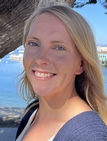
Rachel Seary
NOAA Fisheries, USA
PICES Expert Group Member (WG-51)
Workshop 3 Invited Speaker
Dr. Rachel Seary is a researcher at the University of California, Santa Cruz and the NOAA Ecosystem Science Division in Monterey, California. She received a PhD in Geography from the University of Cambridge in 2019 before moving to the USA to study the California Current Ecosystem. Rachel is interested in the links between humans and the marine environment, and finding the balance between biodiversity conservation and sustaining ocean resources that people need for food, economy and well-being under changing environmental and regulatory landscapes. Her research investigates social-ecological challenges for fishing communities through participatory approaches. Dr Seary is an active member of PICES WG-51 on Exploring Human Networks to Power Sustainability.
MEQ Topic Workshop
Contrasting the occurrence of toxic Alexandrium blooms in the eastern and western North Pacific

Satoshi Nagai
Japan Fisheries Research and Education Agency (FRA), Japan
PICES Expert Group Member (MEQ, AP-NIS)
Workshop 4 Invited Speaker
Satoshi Nagai is a chief scientist at the Japan Fisheries Research and Education Agency. He specializes in the molecular detection of harmful algal blooms (HABs) using techniques such as LAMP, nucleic chromatography, and qPCR/dPCR. His research extends to population genetics, where he developed microsatellites for 12 HAB species. Nagai utilizes NGS-based GWAS techniques like RAD-seq and MIG-seq to study genetic connectivity and breaks among regional populations. Over the past decade, he has led projects on eukaryotic biodiversity using metabarcoding across various marine ecosystems in Japan and internationally, including collaborations in Asian, Chilean, Black Sea, and Baltic Sea waters. Recently, he focuses on comparative genome analysis of marine diatoms (especially the genus Skeletonema) to understand evolutionary processes of speciation.
FUTURE/SmartNet Topic Workshop
Exploring international knowledge co-production: Lessons learned from international marine science organizations at the science-policy interface
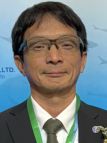
Kentaro Ando
Japan Agency for Marine-Earth Science and Technology (JAMSTEC), Japan
UNESCO/IOC Sub-Commission for the Western Pacific (IOC/WESTPAC)
Workshop 5 Invited Speaker
Ken Ando has worked at Japan Agency for Marine-Earth Science and Technology (JAMSTEC) since 1988 and dedicated to the development and maintenance of the Tropical Pacific Observing System (TPOS), formally called the TAO/TRITON Moored Buoy Array. He has also dedicated to work for IOC/WESTPAC as a vice chairperson since 2017 and is now serving as a chairperson of IOC/WESTPAC since 2021. His scientific interests are mainly on ocean dynamics and air-sea interactions in the tropical region associated with El Nino/Southern Oscillation and Indian Ocean Dipole events. He particularly focused on the role of surface salinity to ocean dynamics and air-sea interactions in the tropical area, and to measure time series of salinity from moored instruments, he developed the data quality system of salinity from the moored TRITON buoy. Recently, after January 1st 2024, he has started his new carrier as Administrative Director at Advanced Institute of Marine Ecosystem Change, hosted by Tohoku University and JAMSTEC.
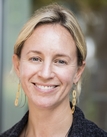
Kristin Kleisner
Environmental Defense Fund (EDF), USA
Workshop 5 Invited Speaker
Kristin Kleisner, Ph.D., is a Lead Senior Scientist and the Associate Vice President for Oceans Science at EDF. Her work is focused on understanding the multiple benefits generated by fisheries systems, including food, climate and biodiversity outcomes. Specifically, she is leading research to investigate the impacts of climate change on the distribution and productivity of fish stocks and understand the implications of these changes for fisheries management systems around the world. Kristin has also worked extensively to elevate the role of aquatic foods in the global food policy dialogue and to help value aquatic foods for their nutritional content. Currently she is leading a team of scientists investigating the potential of various blue carbon natural climate solutions to deliver a suite of benefits to people and nature while minimizing adverse outcomes and risks. Kristin worked previously as a joint research scientist for NOAA’s Northeast Fisheries Science Center in Woods Hole and The Nature Conservancy on the development of ecosystem-based models to explore the effect of climate change on fish stock distributions in New England. She also led research on the development of fisheries, food security, and ecosystem status indicators with IndiSeas (www.indiseas.org), FAO, UNESCO, and the Sea Around Us project. She was a co-PI on the Science for Nature and People Partnership (SNAPP) Working Group on Climate Resilient Fisheries and is a co-lead on the UN Ocean Decade FishSCORE 2030 programme. She has published over 50 peer-reviewed studies in the fisheries and oceanographic literature and holds a PhD in Marine Biology and Fisheries from the Rosenstiel School of Marine and Atmospheric Science at the University of Miami.
MONITOR/TCODE Topic Workshop
Co-creating a shared framework for ocean data management: Finding common ground on terminology

Steve Diggs California Digital Library (CDL), CA, USA
Workshop 6 Invited Speaker
Steve Diggs is a Research Data Specialist with the University of California Office of the President (UCOP), serving as the Senior Product Manager for the data publishing portfolio at the University of California Curation Center (UC3). He previously was the Technical Director for the Hydrographic Data Office at Scripps Institution of Oceanography, UC San Diego.
With decades of experience in designing and operating full-stack information systems, Steve focuses on making data more valuable, discoverable, and accessible to the research community. He is also active in international data and science teams, serving on the Board on Research Data and Information (BRDI) under the National Academies of Sciences, Engineering, and Medicine (NASEM) and the UN Ocean Decade Data Coordination Committee. Steve’s extensive work with researchers in the field and lab gives him a deep understanding of the challenges and opportunities in managing scholarly data.

Chunhua Han National Marine Data and Information Service (NMDIS)
Workshop 6 Invited Speaker
Prof. Chunhua Han is a senior research fellow at National Marine Data and Information Service, Ministry of Natural Resources of China. She is mainly engaged in scientific research and operational work in the fields of national marine information resources management, and marine mineral resources big data application technology research and development. She has undertaken more than 10 provincial and ministerial projects, presided over the development of 2 marine industry standards, written more than 20 departmental rules, regulations and technical specifications, edited 2 monographs, published over 30 papers, and compiled more than 30 important marine data management technical reports. She is now taking the leading role in innovating concepts and technical methods of classifying marine big data resources for the purposes of building and operating the marine big data resources system in China.
FIS Topic Workshop
Integrating biological research, fisheries science and management of flatfish species in the North Pacific Ocean in the face of climate and environmental variability

Shuyang Ma Institute of Marine Research (IMR), Bergen, Norway
Workshop 7 Invited Speaker
I am currently a postdoctoral researcher at the Institute of Marine Research (IMR) in Bergen, Norway. I obtained my PhD in 2019 from Ocean University of China in Qingdao and my major is fishery oceanography. My research interests involve long-term responses of multiple ocean ecological levels to climate change and variability, as well as the associated climate risks on fisheries. I used to focus on the small pelagic fishes and ecosystems in the Northwest Pacific but now I concentrate on fish stocks in the Northeast Atlantic. My study aims to investigate nonlinear dynamics of fishery stocks and their nonstationary relationships with biophysical drivers. This research contributes to both historical understandings on climate-induced biological response and future perspectives on fishery management under climate change.
FUTURE/TCODE Topic Workshop
"Science Jam" - Bridging the gap between science and social media to communicate PICES accomplishments with the world
Workshop 8 Invited Speaker
TBA
BIO Topic Workshop
Puffin diet samples as indicators of forage nekton availability and community structure in the North Pacific
Yutaka Watanuki
Hokkaido University, Japan
PICES Expert Group Member (S-MBM, WG-44)
Workshop 9 Invited Speaker
Dr. Watanuki has been a professor of Division of Marine Environment and Resources, Faculty of Fisheries Sciences, Hokkaido University, for 20 years and now retired. His research interest is to understand the mechanism underlying the seasonal and interannual changes in the foraging behaviour and breeding success of seabirds. He has been conducting the long-term study of phenology, diet, hatching/fledging success and chick growth of three species of seabirds at Teuri Island, Hokkaido. He is also conducting a project revealing flexibility of their foraging behavior using bio-logging techniques. His further interest is to understand the anthropogenic stressors including pollutants and offshore wind farms and the impacts on seabirds. Within PICES he has been a Japanese member of MBM-S since 2000 and worked as a co-chair of this section for 4 years.


